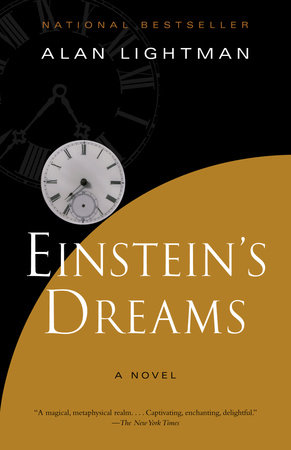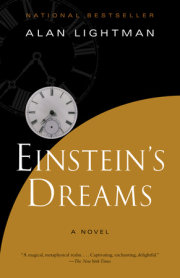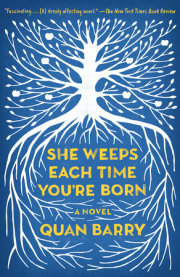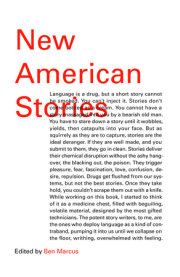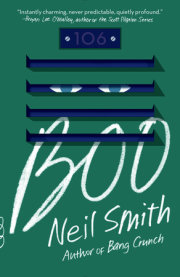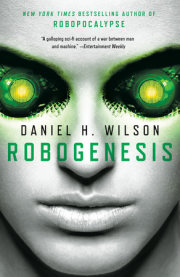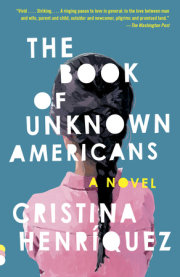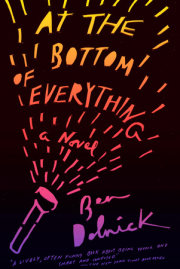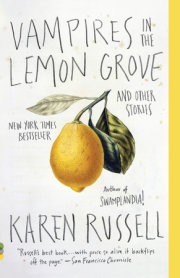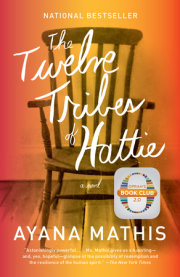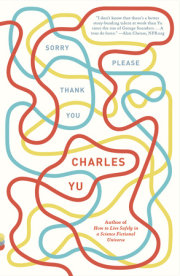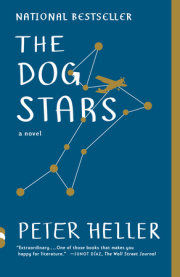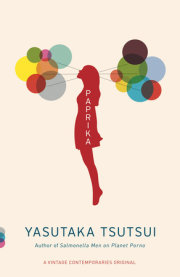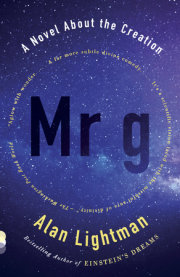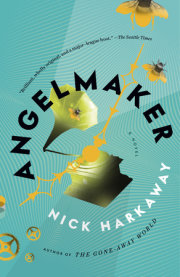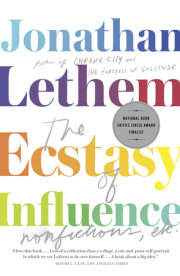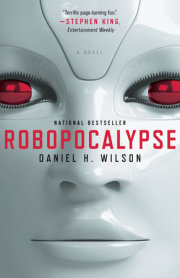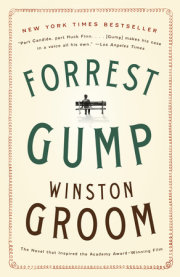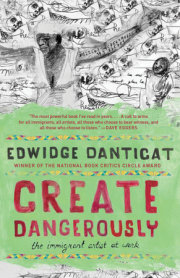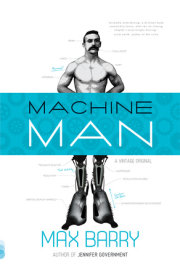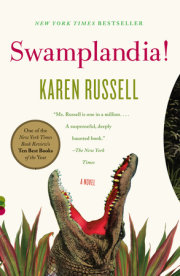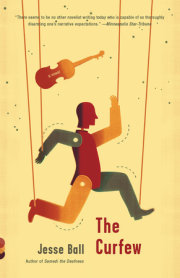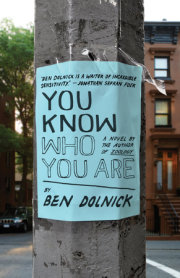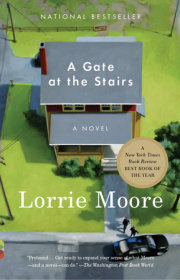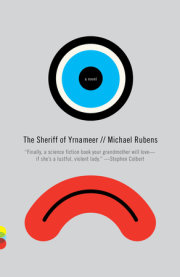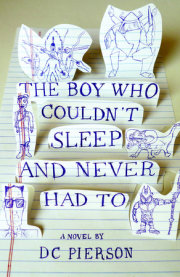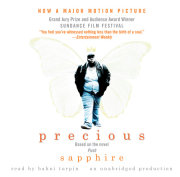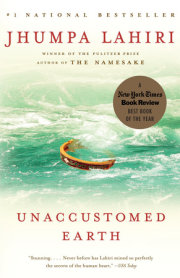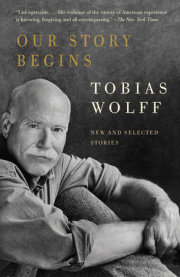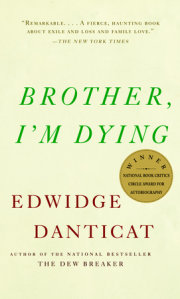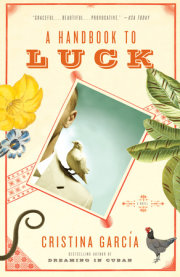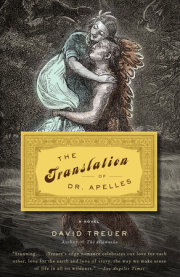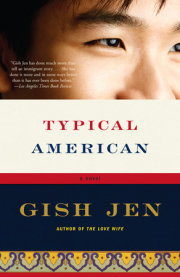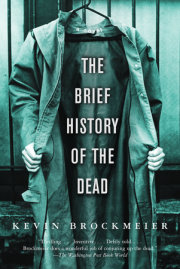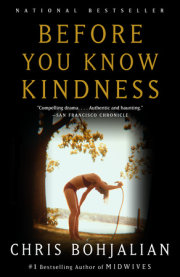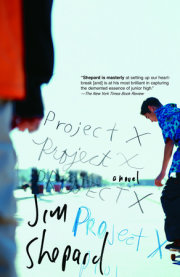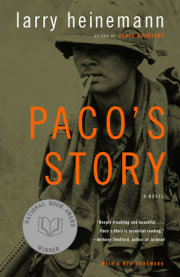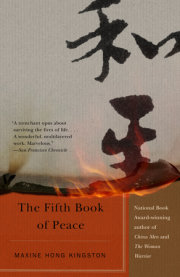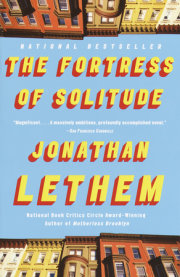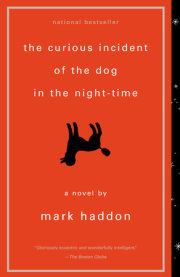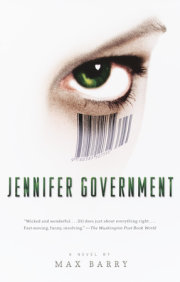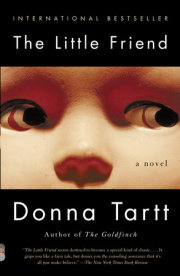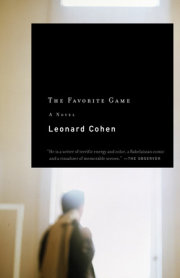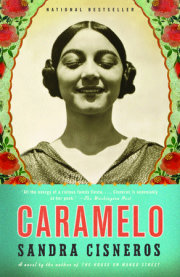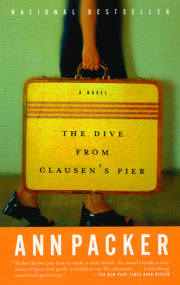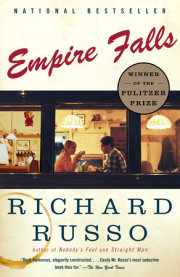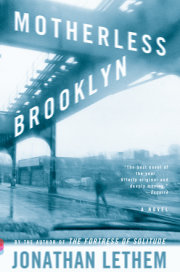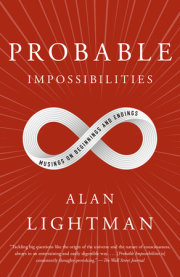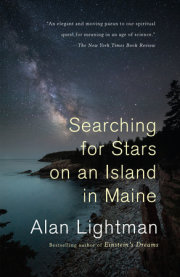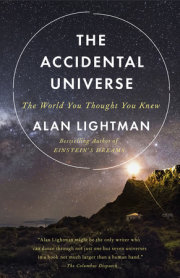14 April 1905Suppose time is a circle, bending back on itself. The world repeats itself, precisely, endlessly.
For the most part, people do not know they will live their lives over. Traders do not know that they will make the same bargain again and again. Politicians do not know that they will shout from the same lectern an infinite number of times in the cycles of time. Parents treasure the first laugh from their child as if they will not hear it again. Lovers making love the first time undress shyly, show surprise at the supple thigh, the fragile nipple. How would they know that each secret glimpse, each touch, will be repeated again and again and again, exactly as before?
On Marktgasse, it is the same. How could the shopkeepers know that each handmade sweater, each embroidered handkerchief, each chocolate candy, each intricate compass and watch will return to their stalls? At dusk, the shopkeepers go home to their families or drink beer in the taverns, calling happily to friends down the vaulted alleys, caressing each moment as an emerald on temporary consignment. How could they know that nothing is temporary, that all will happen again? No more than an ant crawling round the rim of a crystal chandelier knows that it will return to where it began.
In the hospital on Gerberngasse, a woman says goodbye to her husband. He lies in bed and stares at her emptily. In the last two months, his cancer has spread from his throat to his liver, his pancreas, his brain. His two young children sit on one chair in the corner of the room, frightened to look at their father, his sunken cheeks, the withered skin of an old man. The wife comes to the bed and kisses her husband softly on the forehead, whispers goodbye, and quickly leaves with the children. She is certain that this was the last kiss. How could she know that time will begin again, that she will be born again, will study at the gymnasium again, will show her paintings at the gallery in Zürich, will again meet her husband in the small library in Fribourg, will again go sailing with him in Thun Lake on a warm day in July, will give birth again, that her husband will again work for eight years at the pharmaceutical and come home one evening with a lump in his throat, will again throw up and get weak and end up in this hospital, this room, this bed, this moment. How could she know?
In the world in which time is a circle, every handshake, every kiss, every birth, every word, will be repeated precisely. So too every moment that two friends stop becoming friends, every time that a family is broken because of money, every vicious remark in an argument between spouses, every opportunity denied because of a superior's jealousy, every promise not kept.
And just as all things will be repeated in the future, all things now happening happened a million times before. Some few people in every town, in their dreams, are vaguely aware that all has occurred in the past. These are the people with unhappy lives, and they sense that their misjudgments and wrong deeds and bad luck have all taken place in the previous loop of time. In the dead of night these cursed citizens wrestle with their bedsheets, unable to rest, stricken with the knowledge that they cannot change a single action, a single gesture. Their mistakes will be repeated precisely in this life as in the life before. And it is these double unfortunates who give the only sign that time is a circle. For in each town, late at night, the vacant streets and balconies fill up with their moans.
16 April 1905In this world, time is like a flow of water, occasionally displaced by a bit of debris, a passing breeze. Now and then, some cosmic disturbance will cause a rivulet of time to turn away from the mainstream, to make connection backstream. When this happens, birds, soil, people caught in the branching tributary find themselves suddenly carried to the past.
Persons who have been transported back in time are easy to identify. They wear dark, indistinct clothing and walk on their toes, trying not to make a single sound, trying not to bend a single blade of grass. For they fear that any change they make in the past could have drastic consequences for the future.
Just now, for example, such a person is crouching in the shadows of the arcade, at no. 19 Kramgasse. An odd place for a traveler from the future, but there she is. Pedestrians pass, stare, and walk on. She huddles in a corner, then quickly creeps across the street and cowers in another darkened spot, at no. 22. She is terrified that she will kick up dust, just as a Peter Klausen is making his way to the apothecary on Spitalgasse this afternoon of 16 April 1905. Klausen is something of a dandy and hates to have his clothes sullied. If dust messes his clothes, he will stop and painstakingly brush them off, regardless of waiting appointments. If Klausen is sufficiently delayed, he may not buy the ointment for his wife, who has been complaining of leg aches for weeks. In that case, Klausen's wife, in a bad humor, may decide not to make the trip to Lake Geneva. And if she does not go to Lake Geneva on 23 June 1905, she will not meet a Catherine d'Épinay walking on the jetty of the east shore and will not introduce Mlle. d'Épinay to her son Richard. In turn, Richard and Catherine will not marry on 17 December 1908, will not give birth to Friedrich on 8 July 1912. Friedrich Klausen will not be father to Hans Klausen on 22 August 1938, and without Hans Klausen the European Union of 1979 will never occur.
The woman from the future, thrust without warning into this time and this place and now attempting to be invisible in her darkened spot at no. 22 Kramgasse, knows the Klausen story and a thousand other stories waiting to unfold, dependent on the births of children, the movement of people in the streets, the songs of birds at certain moments, the precise position of chairs, the wind. She crouches in the shadows and does not return the stares of people. She crouches and waits for the stream of time to carry her back to her own time.
When a traveler from the future must talk, he does not talk but whimpers. He whispers tortured sounds. He is agonized. For if he makes the slightest alteration in anything, he may destroy the future. At the same time, he is forced to witness events without being part of them, without changing them. He envies the people who live in their own time, who can act at will, oblivious of the future, ignorant of the effects of their actions. But he cannot act. He is an inert gas, a ghost, a sheet without soul. He has lost his personhood. He is an exile of time.
Such wretched people from the future can be found in every village and every town, hiding under the eaves of buildings, in basements, under bridges, in deserted fields. They are not questioned about coming events, about future marriages, births, finances, inventions, profits to be made. Instead, they are left alone and pitied.
19 April 1905It is a cold morning in November and the first snow has fallen. A man in a long leather coat stands on his fourth-floor balcony on Kramgasse overlooking the Zähringer Fountain and the white street below. To the east, he can see the fragile steeple of St. Vincent's Cathedral, to the west, the curved roof of the Zytgloggeturm. But the man is not looking east or west. He is staring down at a tiny red hat left in the snow below, and he is thinking. Should he go to the woman's house in Fribourg? His hands grip the metal balustrade, let go, grip again. Should he visit her? Should he visit her?
He decides not to see her again. She is manipulative and judgmental, and she could make his life miserable. Perhaps she would not be interested in him anyway. So he decides not to see her again. Instead, he keeps to the company of men. He works hard at the pharmaceutical, where he hardly notices the female assistant manager. He goes to the brasserie on Kochergasse in the evenings with his friends and drinks beer, he learns to make fondue. Then, in three years, he meets another woman in a clothing shop in Neuchâtel. She is nice. She makes love to him very very slowly, over a period of months. After a year, she comes to live with him in Berne. They live quietly, take walks together along the Aare, are companions to each other, grow old and contented.
In the second world, the man in the long leather coat decides that he must see the Fribourg woman again. He hardly knows her, she could be manipulative, and her movements hint at volatility, but that way her face softens when she smiles, that laugh, that clever use of words. Yes, he must see her again. He goes to her house in Fribourg, sits on the couch with her, within moments feels his heart pounding, grows weak at the sight of the white of her arms. They make love, loudly and with passion. She persuades him to move to Fribourg. He leaves his job in Berne and begins work at the Fribourg Post Bureau. He burns with his love for her. Every day he comes home at noon. They eat, they make love, they argue, she complains that she needs more money, he pleads with her, she throws pots at him, they make love again, he returns to the Post Bureau. She threatens to leave him, but she does not leave him. He lives for her, and he is happy with his anguish.
In the third world, he also decides that he must see her again. He hardly knows her, she could be manipulative, and her movements hint at volatility, but that smile, that laugh, that clever use of words. Yes, he must see her again. He goes to her house in Fribourg, meets her at the door, has tea with her at her kitchen table. They talk of her work at the library, his job at the pharmaceutical. After an hour, she says that she must leave to help a friend, she says goodbye to him, they shake hands. He travels the thirty kilometers back to Berne, feels empty during the train ride home, goes to his fourth-floor apartment on Kramgasse, stands on the balcony and stares down at the tiny red hat left in the snow.
These three chains of events all indeed happen, simultaneously. For in this world, time has three dimensions, like space. Just as an object may move in three perpendicular directions, corresponding to horizontal, vertical, and longitudinal, so an object may participate in three perpendicular futures. Each future moves in a different direction of time. Each future is real. At every point of decision, whether to visit a woman in Fribourg or to buy a new coat, the world splits into three worlds, each with the same people but with different fates for those people. In time, there are an infinity of worlds.
Some make light of decisions, arguing that all possible decisions will occur. In such a world, how could one be responsible for his actions? Others hold that each decision must be considered and committed to, that without commitment there is chaos. Such people are content to live in contradictory worlds, so long as they know the reason for each.
24 April 1905In this world, there are two times. There is mechanical time and there is body time. The first is as rigid and metallic as a massive pendulum of iron that swings back and forth, back and forth, back and forth. The second squirms and wriggles like a bluefish in a bay. The first is unyielding, predetermined. The second makes up its mind as it goes along.
Many are convinced that mechanical time does not exist. When they pass the giant clock on the Kramgasse they do not see it; nor do they hear its chimes while sending packages on Postgasse or strolling between flowers in the Rosengarten. They wear watches on their wrists, but only as ornaments or as courtesies to those who would give timepieces as gifts. They do not keep clocks in their houses. Instead, they listen to their heartbeats. They feel the rhythms of their moods and desires. Such people eat when they are hungry, go to their jobs at the millinery or the chemist's whenever they wake from their sleep, make love all hours of the day. Such people laugh at the thought of mechanical time. They know that time moves in fits and starts. They know that time struggles forward with a weight on its back when they are rushing an injured child to the hospital or bearing the gaze of a neighbor wronged. And they know too that time darts across the field of vision when they are eating well with friends or receiving praise or lying in the arms of a secret lover.
Then there are those who think their bodies don't exist. They live by mechanical time. They rise at seven o'clock in the morning. They eat their lunch at noon and their supper at six. They arrive at their appointments on time, precisely by the clock. They make love between eight and ten at night. They work forty hours a week, read the Sunday paper on Sunday, play chess on Tuesday nights. When their stomach growls, they look at their watch to see if it is time to eat. When they begin to lose themselves in a concert, they look at the clock above the stage to see when it will be time to go home. They know that the body is not a thing of wild magic, but a collection of chemicals, tissues, and nerve impulses. Thoughts are no more than electrical surges in the brain. Sexual arousal is no more than a flow of chemicals to certain nerve endings. Sadness no more than a bit of acid transfixed in the cerebellum. In short, the body is a machine, subject to the same laws of electricity and mechanics as an electron or clock. As such, the body must be addressed in the language of physics. And if the body speaks, it is the speaking only of so many levers and forces. The body is a thing to be ordered, not obeyed.
Taking the night air along the river Aare, one sees evidence for two worlds in one. A boatman gauges his position in the dark by counting seconds drifted in the water's current. "One, three meters. Two, six meters. Three, nine meters." His voice cuts through the black in clean and certain syllables. Beneath a lamppost on the Nydegg Bridge, two brothers who have not seen each other for a year stand and drink and laugh. The bell of St. Vincent's Cathedral sings ten times. In seconds, lights in the apartments lining Schifflaube wink out, in a perfect mechanized response, like the deductions of Euclid's geometry. Lying on the riverbank, two lovers look up lazily, awakened from a timeless sleep by the distant church bells, surprised to find that night has come.
Where the two times meet, desperation. Where the two times go their separate ways, contentment. For, miraculously, a barrister, a nurse, a baker can make a world in either time, but not in both times. Each time is true, but the truths are not the same.
Copyright © 2004 by Alan Lightman. All rights reserved. No part of this excerpt may be reproduced or reprinted without permission in writing from the publisher.

